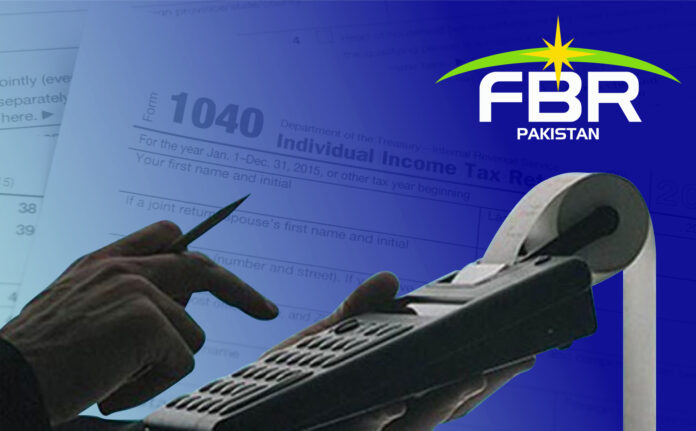The Federal Board of Revenue (FBR) has outlined its ongoing transformation plan to modernise tax administration, focusing on people, technology, and processes, during a session with the Overseas Investors Chamber of Commerce and Industry (OICCI) and the Pakistan Business Council (PBC).
The meeting, chaired by FBR Chairman Rashid Mahmood on Wednesday, was attended by senior business representatives. Member Inland Revenue Operations Dr Hamid Ateeq Sarwar presented the transformation roadmap, first approved by the Prime Minister in October 2024.
According to the FBR, the plan includes the recruitment of around 1,600 auditors to strengthen audit capacity, training of officers at leading universities, and appointments tied to integrity under a revamped Reward and Rating System linked with incentive packages.
Highlighting technology’s central role, Mahmood said digital production monitoring has already been rolled out in sugar, cement, fertiliser, beverages, tobacco, poultry, and textile industries. Data integration and digitalisation are underway to track economic activity, curb tax evasion, and apply AI-driven risk parameters for audit selection.
The FBR reported that the country’s tax-to-GDP ratio improved to 10.24% in FY25, up from 8.8% in FY24. It also shared results from the “Faceless Customs Appraisement” initiative, which in its pilot phase has raised revenue per GD by 17.3% while cutting dwell time and demurrages at ports.
Enforcement has also produced gains, with collections rising eightfold compared to last year. On taxpayer facilitation, a dedicated Facilitation Division has been set up at LTO Karachi, where senior officers are tasked with directly addressing taxpayers’ concerns. Mahmood also suggested creating a joint committee of FBR, PBC, and OICCI to resolve valuation rulings and related matters.
Business leaders welcomed the pace of reforms, stressing that technology-driven initiatives would broaden the tax base and reduce pressure on compliant taxpayers. They also called for continued engagement between FBR and stakeholders to sustain reform momentum.




